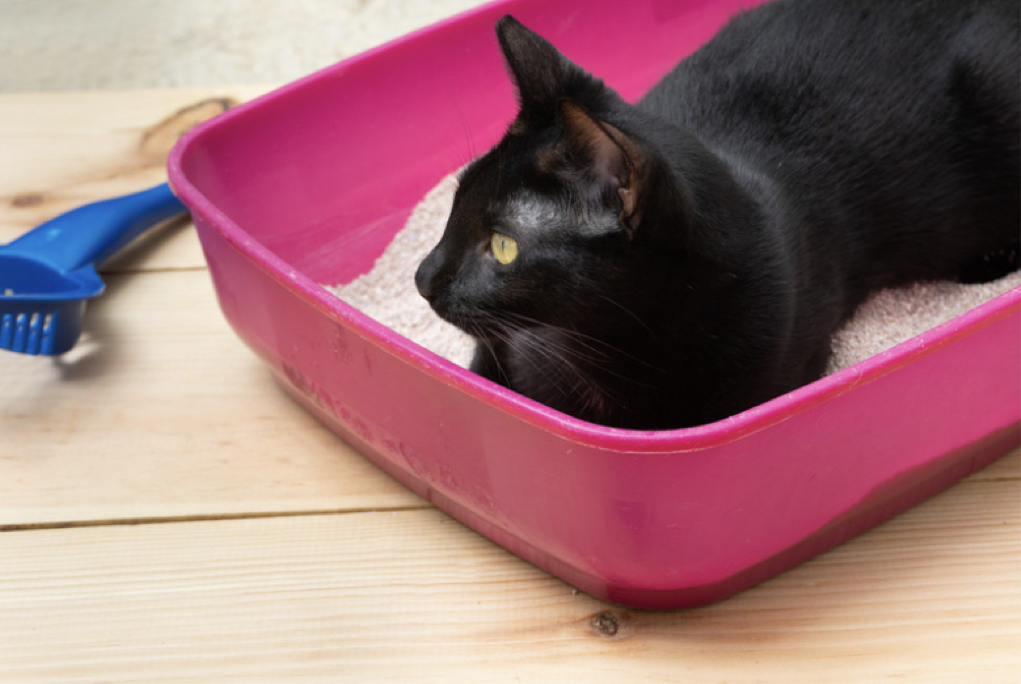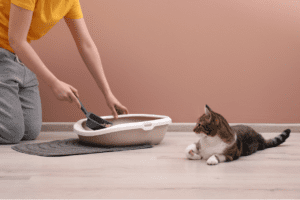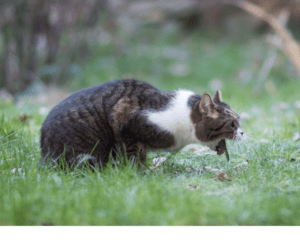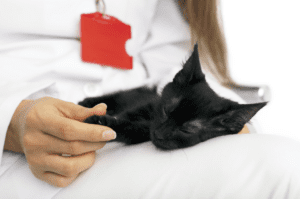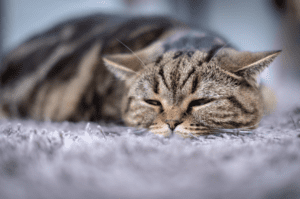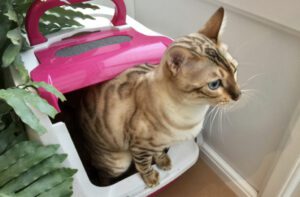Like humans, cats can have IBD too. This long-term disease can be challenging for your feline companion, and stressful and worrisome for you as a pet parent. If your cat is recently diagnosed with IBD, here are a few things you need to know:
What is IBD?
IBD stands for inflammatory bowel disease, a group of diseases that causes inflammation and damage in the gastrointestinal tract. It is a common condition in cats that affects the intestines and bowels. Cats with IBD often experience symptoms like diarrhea, vomiting, weight loss, or loss of appetite. In some cases, untreated IBD can be fatal.
IBD is more common in middle-aged and older cats, but any cat can develop it. The main cause of IBD in cats is unknown, but it is thought that a combination of genetic and environmental factors plays a part.
Unfortunately, IBD cannot be cured, but symptoms can be managed with medication, dietary changes, and supportive care.
What are the Symptoms of IBD?
Chronic diarrhea is one of the most common symptoms of IBD in cats. Other common symptoms include:
- Unexplained weight loss
- Loss of appetite
- Vomiting
- Bloody stools
- Abdominal pain
- Excessive flatulence
- Thinning of the coat
- Lethargy
- Rumbling or gurgling sounds from the abdomen
- Vomiting hairballs
- Abdominal swelling
These symptoms of IBD may manifest themselves suddenly or slowly over time. It can be challenging to diagnose IBD because it can affect cats differently depending on their overall health and other medical conditions.
How is IBD Diagnosed?
The first step in diagnosing IBD in cats is to rule out other possible causes of your pet’s symptoms. Your veterinarian will perform a complete physical exam and conduct diagnostic tests to determine the cause of your pet’s symptoms. They may also perform a fecal sample to test for parasites.
The definitive diagnosis of IBD is made by performing an endoscopy procedure on your cat. During this procedure, your veterinarian uses a small camera attached to a tube to evaluate the inside of your cat’s gastrointestinal tract for signs of inflammation. If necessary, they may also take tissue samples from your cat for further testing.
Your veterinarian may also perform blood tests to determine if any other underlying conditions may be contributing to your cat’s symptoms. This may include tests to check for infection, diabetes, hyperthyroidism, and liver disease.
How is IBD Treated?
There is no one-size-fits-all answer to addressing IBD in cats, as the condition will respond differently to treatment depending on the individual cat’s unique medical history and symptoms. Medical management and supportive care are critical in helping control IBD in cats and improve their quality of life.
Treatment for cats with mild to moderate IBD usually involves dietary changes, medications, and nutritional supplements.
Dietary changes may include:
- Eliminating all potential allergens from the diet, including grains, soy, dairy, artificial colors, flavors, and preservatives.
- Providing a diet that is low in fiber and carbohydrates, and high in protein and fat.
- Supplementing the diet with probiotics and digestive enzymes.
Some cats require life-long medication treatment to manage their IBD symptoms. Medications are usually given orally and should be administered as directed by your veterinarian.
Medications may include:
- Corticosteroids: These medications help reduce inflammation in the intestines.
- Immunomodulators: These medications help reduce inflammation in the intestines and suppress the immune system.
- Antibiotics: These medications help fight bacterial infections.
- Anti-inflammatory medications: These medications help reduce inflammation in the intestines.
- Antidiarrheal medications: These medications help control diarrhea.
How to Care for Cats with IBD?
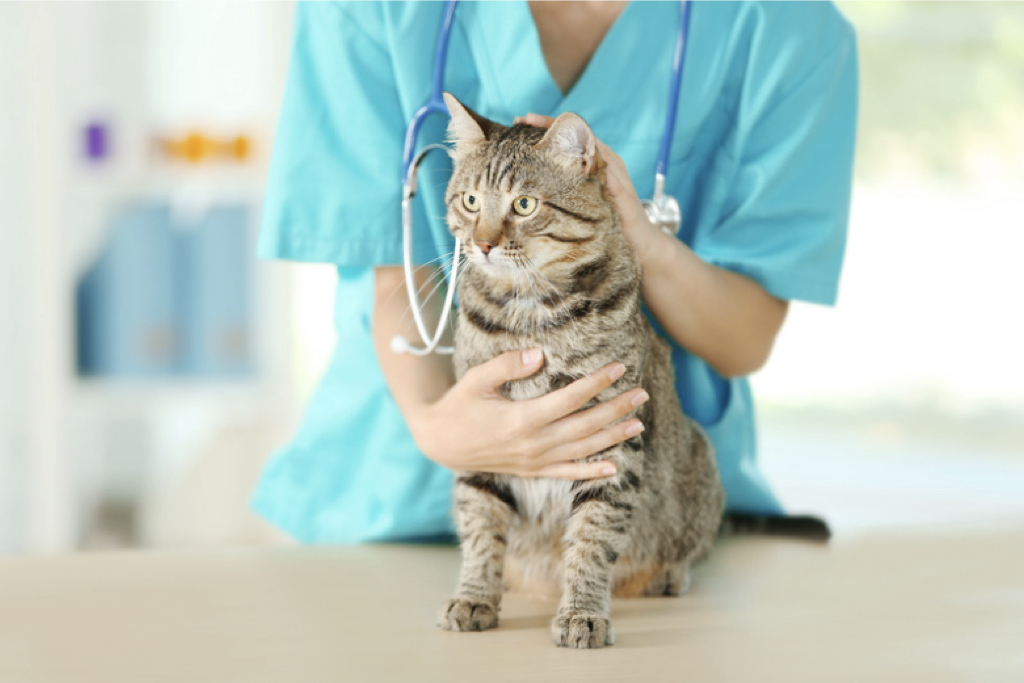
Since IBD in cats cannot be completely cured, it is essential to provide supportive care to help control symptoms and prevent complications. It is important to work closely with a veterinarian to manage a cat’s IBD and provide necessary medications or other therapies to prevent disease progression and promote optimal quality of life. The following is a list of management strategies and common supportive therapies that may be used to treat cats with IBD:
- Maintain regular follow-up appointments to monitor your cat’s progress and ensure that any ongoing treatments effectively manage symptoms and prevent complications.
- Monitor your cat’s condition at home by recording all changes in activity levels, appetite, water intake, litter box use, grooming habits, and weight.
- Give your cat plenty of opportunities to exercise and stay physically fit to promote strength and muscle tone, which can aid in preventing and managing obesity in cats with IBD.
- Consider providing specialized diets designed for senior cats or cats with chronic health conditions to help support overall health and reduce the risk of developing additional health problems.
- Provide plenty of fresh drinking water to encourage hydration and prevent dehydration.
- Reduce stress and limit exposure to potential environmental triggers that may cause further inflammation and affect your cat’s immune system.
- Work with your veterinarian to establish an at-home treatment plan to help manage your cat’s symptoms and reduce the risk of infection and other complications.
Seek Veterinary Care Immediately
IBD can be difficult to diagnose because its symptoms are quite similar to other common illnesses that may affect cats. If you have observed any of the symptoms above, it is best to seek professional help immediately. The sooner a diagnosis is made, the sooner the disease will be treated appropriately. This way, you can prevent further complications, provide supportive care for your cat, and improve its quality of life.
